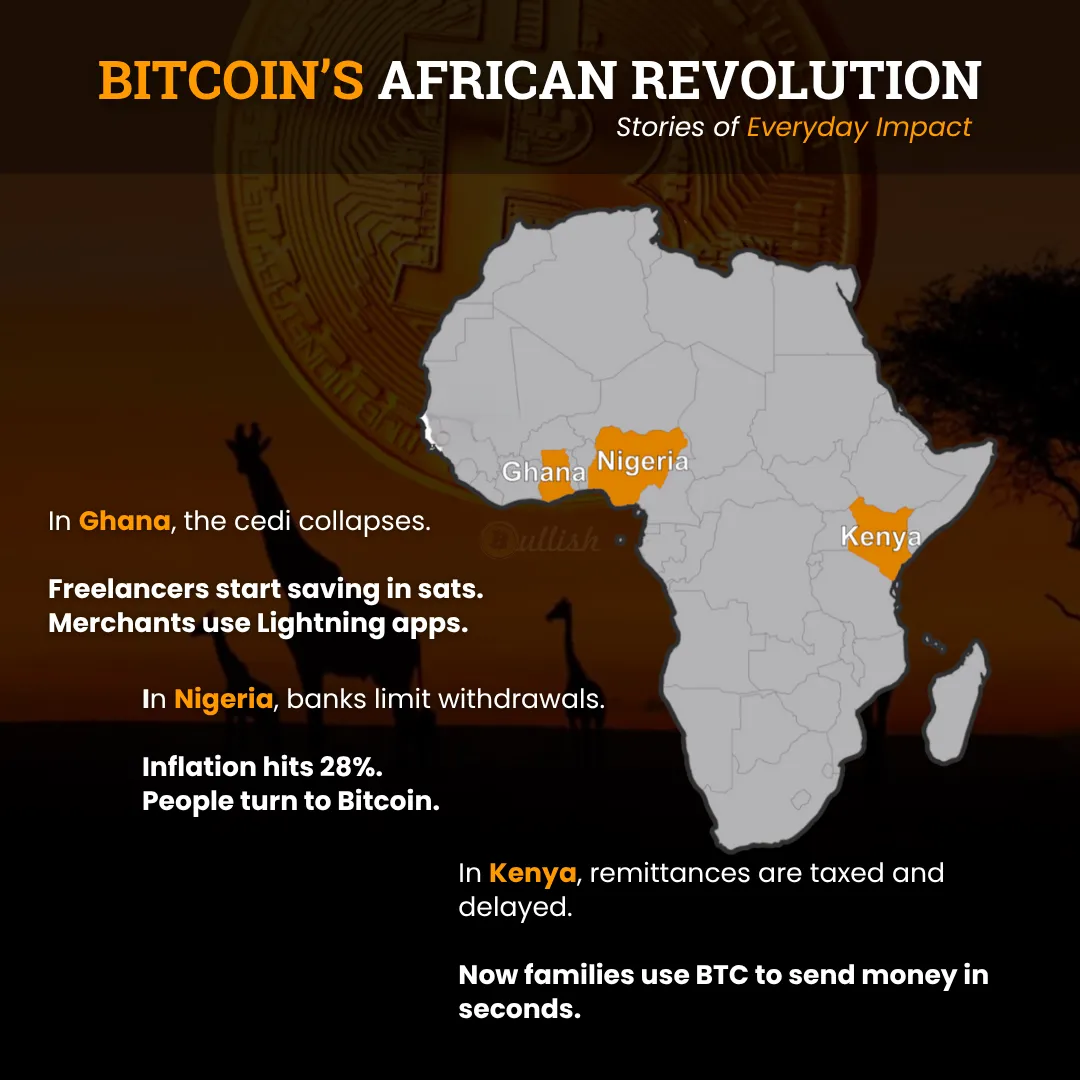
Bitcoin’s African Revolution: Stories of Everyday Impact
Simple Saturday – Bite-Sized Bitcoin Education + Lifestyle
While Western media debates ETFs and price charts, something far more important is happening across Africa:
Bitcoin is solving real problems.
Nigeria: Bitcoin Beats the Bank
In Nigeria, inflation hit over 28% in 2024.
The government limited ATM withdrawals and pushed a failing central bank digital currency (eNaira). Citizens responded by turning to peer-to-peer Bitcoin markets.
No bank. No ID. No permission.
Just money that works.
Ghana: Inflation Hedge and Business Tool
As the Ghanaian cedi collapsed, Bitcoin became a savings strategy for freelancers, merchants, and tech workers.
People began using apps like Bitnob, Paxful, and Lightning wallets to earn and transact.
Bitcoin wasn’t just speculation.
It was survival.
Kenya: Cross-Border Payments Reinvented
Remittances are a lifeline across East Africa. But fees from Western Union and banks take a massive cut.
Enter Bitcoin.
Now, using Strike or Wallet of Satoshi, families can send money instantly—with no middlemen.
Faster. Cheaper. Borderless.
Why This Matters
In places with:
Currency controls
High inflation
Corrupt governments
Limited banking access
Bitcoin isn’t optional—it’s essential.
“Bitcoin fixes this” isn’t a meme in Africa.
It’s daily life.
If you want to go deeper into how Bitcoin is advancing human rights, especially across Africa, check out the incredible work in Check Your Financial Privilege by Alex Gladstein.
It’s filled with real voices from people using Bitcoin as a tool for survival, freedom, and dignity.
Bitcoin isn't just financial tech. It's human rights infrastructure.



